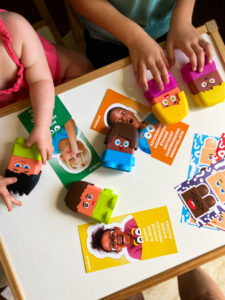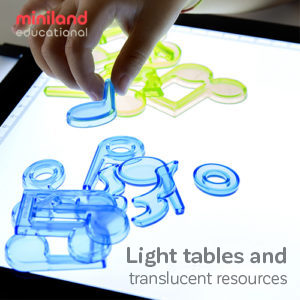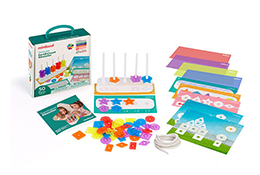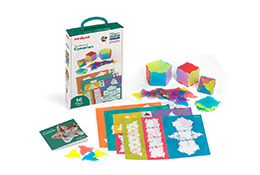
As we celebrate Teacher Appreciation Week, it’s important to recognize the challenges early education teachers face in incorporating inclusivity in the classroom and explore how we can support them in overcoming these obstacles. Part of the focus of our Innovators in Inclusion campaign is to support teachers and their efforts in incorporating inclusion in the classroom.
Let’s dive into the challenges they face:
Challenges Faced by Early Education Teachers:
- Lack of Resources and Training: Many early education teachers receive minimal training on diversity and inclusivity, leaving them ill-equipped to address the unique needs of their students.
- Pressure to Adhere to Standardized Curriculum: The emphasis on meeting academic standards can leave little room for incorporating inclusive practices.
- Resistance from Parents or Caregivers: Some parents may be resistant to curriculum changes or discussions about diversity, making it challenging for teachers to create an inclusive classroom culture.
Solutions to Support Teachers:
- Provide Resources and Training: Offering teachers access to resources and training on diversity, inclusivity, and social-emotional learning (SEL) can help them incorporate these practices into their classrooms. Tools like Miniland dolls, which represent diverse cultures and abilities, can be valuable in teaching children about inclusivity.

2. Promote Flexible Curriculum: Encouraging schools to adopt a more flexible curriculum that allows for the integration of inclusive practices can empower teachers to create a more diverse and inclusive learning environment.
3. Educate Parents and Caregivers: Providing resources and information to parents and caregivers about the importance of inclusivity in early education can help alleviate resistance and create a more supportive environment for teachers.
How Inclusive Dolls and Social Emotional Learning Products Can Help:
- Representation: Dolls like the Miniland Colourful Collection represent diverse cultures and abilities, providing children with a tangible way to learn about and celebrate differences in the classroom and at home.

Empathy and Understanding: Social Emotional Learning products like Miniland’s Emotiblocks and Family Diversity Blocks can help teach children about empathy, kindness, and understanding, fostering a more inclusive classroom culture. By playing with Emotiblocks, children can learn about empathy by imagining how others might be feeling based on their facial expressions. This can help develop their ability to understand and relate to emotions of others. Family Diversity Blocks are a great tool to teach children about the diversity that exists in families because they provide a visual and tactile way for children to learn about different family structures. 
- Inclusivity in Play: Implementing different play activities that promote inclusivity like Miniland’s Inclusion Puzzles or Miniland’s dolls with different abilities and conditions encourages children to interact with and learn from each other regardless of their differences.
As we honor early education teachers during Teacher Appreciation Week, let’s also commit to supporting them in creating inclusive classrooms where all children feel valued and respected. By providing resources, promoting flexibility in curriculum, and educating parents and caregivers, we can help teachers overcome the challenges they face and create a more inclusive learning environment for all. Stay tuned to our Instagram account @minilandusa for a fun surprise to help teachers promote inclusivity in the classroom.




